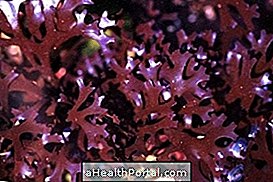Wilson's disease is a rare genetic disease, caused by the body's inability to metabolize copper. This problem causes copper to accumulate in the brain, kidneys, liver and eyes, causing a picture of intoxication in individuals.
This disease is hereditary, that is, it passes from parents to children, but it is only generally discovered around the age of 6, when the child begins to present the first symptoms of copper intoxication.
Wilson's disease has no cure, however, there are medications and procedures that can help reduce the build-up of copper in the body and the symptoms of the disease.
Symptoms of Wilson's Disease
Symptoms of Wilson's disease arise due to the accumulation of copper in the tissues, especially in the brain and liver, and can be:
- Insanity;
- Psychosis;
- Delusions or confusion;
- Difficulty walking;
- Slow movements;
- Behavior and personality changes;
- Loss of speaking ability;
- Hepatitis;
- Cirrhosis;
- Jaundice;
- Blood in the vomit;
- Weakness.
Another common feature of Wilson's disease is the appearance of reddish or brownish rings in the eyes, resulting from the accumulation of copper there. It is also common to appear, in Wilson's disease, copper crystals in the kidneys, leading to the formation of kidney stones.
The diagnosis of Wilson's disease is made through the analysis of symptoms or blood and urine tests to detect the amount of copper in the body.
Treatment of Wilson's Disease
The treatment of Wilson's Disease aims to decrease the amount of copper accumulated in the body and improve the symptoms of the disease. There are medications that can be taken by patients, because they bind to copper, helping to eliminate them through the intestines and kidneys. Some of these medications are:
- Penicillamine;
- Triethylenemelamine;
- Zinc acetate;
- Vitamin E Supplements.
It is important to reduce the consumption of copper-rich foods in the treatment of Wilson's disease. The diet in Wilson's Disease is to avoid foods, such as:
- Chocolate;
- Dry fruits;
- Liver;
- Mushrooms;
- Nuts.
Eating with cooking utensils made of copper should also be avoided.
Useful link:
Hemochromatosis























